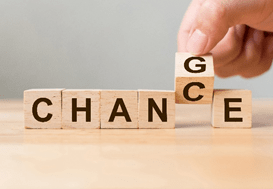Disclaimer*: The articles shared under 'Your Voice' section are sent to us by contributors and we neither confirm nor deny the authenticity of any facts stated below. Parhlo will not be liable for any false, inaccurate, inappropriate or incomplete information presented on the website. Read our disclaimer.
This article was originally submitted by Aimen Aftab
As a nation or even as humans, we tend to be critical of those different than us. Name-calling, as well as snubbing, has become second nature to us. This is a result of the lack of tolerance that is becoming very common these days. Ridiculing and harassment, not only at workplaces or public places but at homes has become habitual, especially towards those we deem ‘difficult’ to handle.
According to Samaa, People with disabilities make up 3.3 million to 27 million of the population. This faction not only includes those with physical disabilities but also those with mental disabilities or altered mental capacity. They are not only subjected to unfair treatment and inequality but are considered as burdens to the society. Their dignity and worth are challenged time and again, at even harsher levels as they are subjected to mockery and scorn.
Although our constitution protects such individuals against inequality by requiring employers that at least 2% of the total number of individuals hired at a time should be people with disabilities (Disabled Persons Employment and Rehabilitation Ordinance, 1981). However, this is not strictly followed as such individuals are overlooked or neglected due to the notion that they would underperform their duties. They are also overlooked because the employers feel that they would have to provide extra facilities and more care to such individuals as opposed to healthy individuals.

A recent incident which has brought to light this issue is a petition filed against Multan Education Department; by a native man named Ubaidullah who was subjected to unfair treatment on the basis of his disability.
He had applied for the post of a school educator in Multan under the quota for persons with disability. According to the petitioner, a total of 81 posts were available, and based on; the Disabled Persons Employment and Rehabilitation Ordinance (1981), at least five of these posts should have been set aside; for persons with disabilities. Currently, only one person has been employed under this quota. The petitioner challenged this unjust treatment in Lahore High Court, but his petition was rejected.
However, the Supreme Court took notice of this incident and over-ruled Lahore High Court’s verdict; giving the Government only one month to hire people with disabilities according to the quota. “Pakistan’s Constitution, as a whole, does not distinguish between a person with or without disabilities,” the court said. “It recognises the inherent dignity of a human being; equal and inalienable rights of all the people as the foundation of freedom, justice and peace. Every person is entitled to all the rights and freedoms set forth therein, without distinction of any kind.”
In addition to this, the Supreme Court of Pakistan has directed federal and provincial governments; to dispense with words such as “physically handicapped”, “disabled” and “mentally retarded” when referring to individuals with disabilities. The governments have been instructed to use “persons with different abilities” or “persons with disabilities”; replacing previously used offensive labels in their official correspondence, notifications, circulars and directives.
Also read: Meet Gulzar Hussain Who Educates Children With Love Despite Being Disabled

The notion behind this change is that such insulting words lead to a decline; in self-worth and deeply bruise ego and dignity of persons with disabilities. Such offensive labels develop an inferiority complex within such individuals, shattering their confidence and pride.
Such labels are the result of a lack of tolerance in the society; where even a small mistake is ridiculed and individuals with different abilities are trolled.
Our constitution gives each individual equal rights and freedom, with no discrimination between persons with or without a disability. However, persons with disabilities are the target of such discrimination on a daily basis. This lack of tolerance promotes aggression in society, along with feelings of depression and hopelessness in the targeted individuals. This negativity affects the society as a whole; where distrust and misdemeanours become more common leading to chaos and dishevelment of the society.
For a positive and productive society, we should focus on; building up our tolerance and to be more accepting of people different than ourselves. As a society, our aim should be to strengthen this faction as well; and to give them the confidence that they are an equal part of society.
They should be treated as any other person would be, and to make allowances; for any hindrance caused by their disability. Their differences should not only be acknowledged by society but also accepted as well. Only then can we flourish as a great nation.







